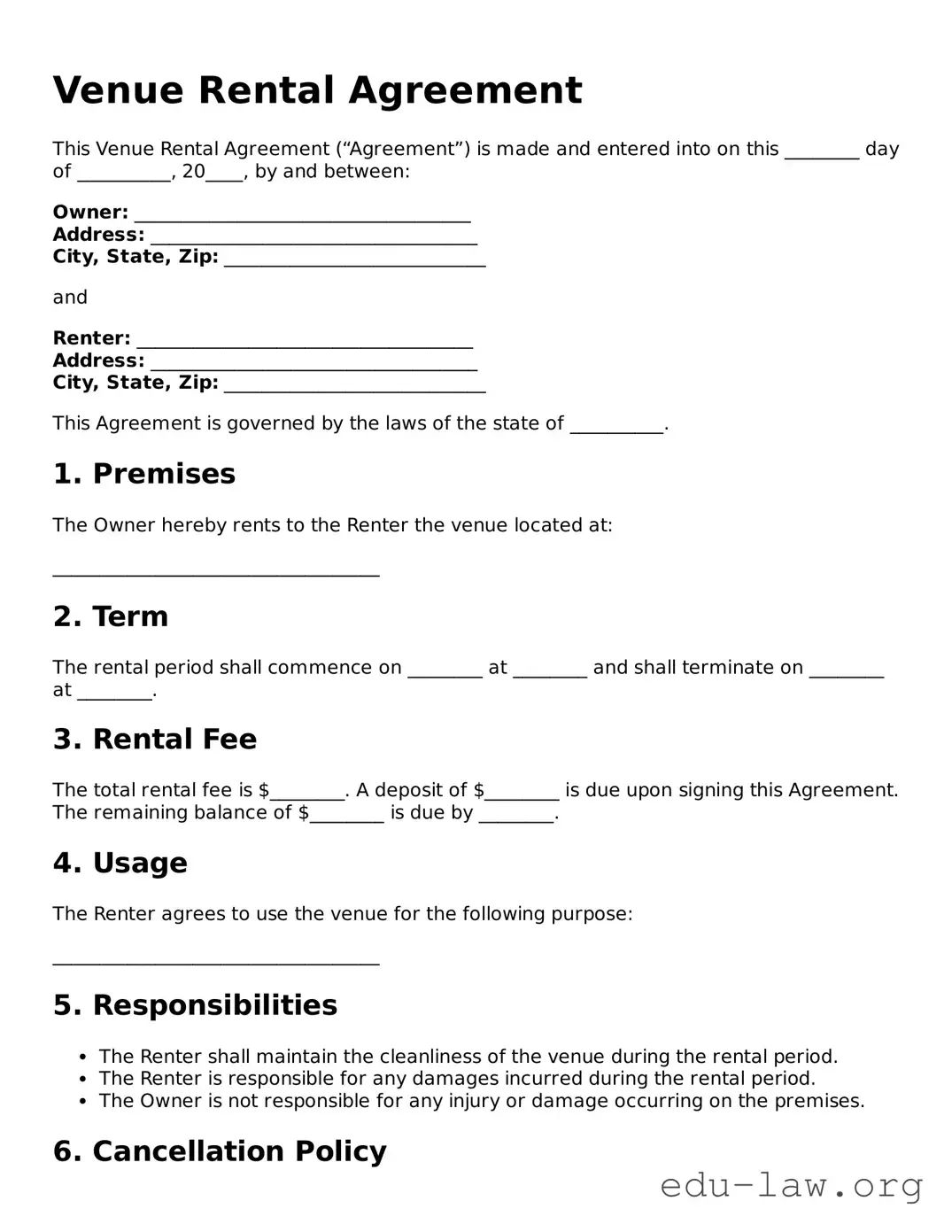Venue Rental Agreement
This Venue Rental Agreement (“Agreement”) is made and entered into on this ________ day of __________, 20____, by and between:
Owner: ____________________________________
Address: ___________________________________
City, State, Zip: ____________________________
and
Renter: ____________________________________
Address: ___________________________________
City, State, Zip: ____________________________
This Agreement is governed by the laws of the state of __________.
1. Premises
The Owner hereby rents to the Renter the venue located at:
___________________________________
2. Term
The rental period shall commence on ________ at ________ and shall terminate on ________ at ________.
3. Rental Fee
The total rental fee is $________. A deposit of $________ is due upon signing this Agreement. The remaining balance of $________ is due by ________.
4. Usage
The Renter agrees to use the venue for the following purpose:
___________________________________
5. Responsibilities
- The Renter shall maintain the cleanliness of the venue during the rental period.
- The Renter is responsible for any damages incurred during the rental period.
- The Owner is not responsible for any injury or damage occurring on the premises.
6. Cancellation Policy
In the event of cancellation:
- Notifying the Owner at least 30 days in advance entitles the Renter to a full refund of the deposit.
- Cancellations made less than 30 days prior will result in a forfeit of the deposit.
7. Signatures
The undersigned agree to the terms and conditions set forth in this Agreement.
Owner's Signature: _________________________
Date: ________________
Renter's Signature: _________________________
Date: ________________
